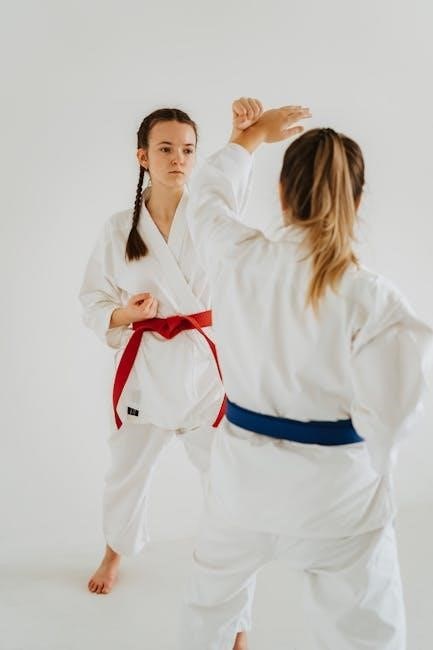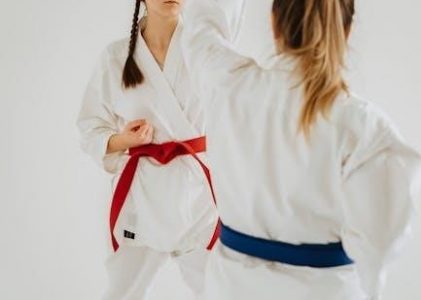The Oklahoma Uniform Jury Instructions (OUJI) provide standardized directions for juries in civil and criminal cases, ensuring clarity and consistency in Oklahoma’s judicial process.
1.1 History and Purpose
The Oklahoma Uniform Jury Instructions (OUJI) were established to provide standardized directions for juries in civil and criminal cases. First introduced in the early 1960s, the OUJI aimed to ensure consistency and clarity in jury instructions across Oklahoma courts. The purpose of these instructions is to guide jurors in understanding legal principles, evaluating evidence, and reaching fair verdicts. By standardizing language and reducing variability, the OUJI helps maintain the integrity of trials and ensures that jurors are uniformly informed. Regular updates by legal committees reflect evolving laws and judicial practices, keeping the instructions relevant and effective in supporting Oklahoma’s judicial system.
- The OUJI ensures clarity and consistency in jury instructions.
- Regular updates adapt to changes in state laws and legal standards.
- The instructions are designed to aid jurors in understanding their role and responsibilities.
1.2 Structure and Organization
The Oklahoma Uniform Jury Instructions (OUJI) are organized into three main sections: civil, criminal, and juvenile instructions. Each section is further divided into specific categories, such as introductory instructions, damages, and general instructions. The civil instructions cover topics like liability, negligence, and damages, while criminal instructions address elements of crimes, burdens of proof, and sentencing considerations. Juvenile instructions are tailored to family law and youth proceedings. The instructions are indexed for easy reference, with clear headings and numbered sections to ensure accessibility. This structured approach helps judges, attorneys, and jurors navigate the legal guidelines efficiently, promoting uniformity and clarity in courtroom proceedings across Oklahoma.
- Civil instructions address liability and damages.
- Criminal instructions cover elements of crimes and sentencing.
- Juvenile instructions focus on family and youth matters.
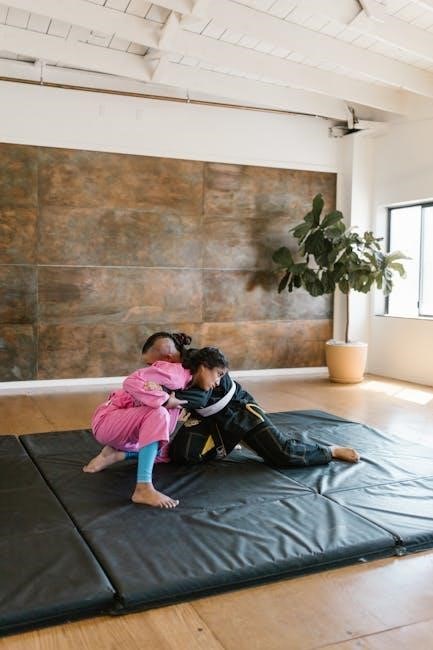
Civil Jury Instructions
The Oklahoma Uniform Jury Instructions (OUJI) for civil cases provide clear guidance on liability, negligence, and damages, ensuring jurors understand legal standards and apply them fairly in trials.
2.1 Introductory Instructions
The introductory instructions in Oklahoma’s civil jury guidelines outline the foundational role of jurors, emphasizing their duty to remain impartial and follow the law as instructed. These instructions explain the voir dire process, including the oath prospective jurors take to answer truthfully. They also clarify the importance of fairness and impartiality, ensuring jurors understand their role in delivering justice. Specific instructions, such as OUJI-CIV No. 1.2A, allow courts to use juror questionnaires to assess biases. This section sets the stage for the trial, providing jurors with a clear understanding of their responsibilities and the legal framework they must adhere to throughout the proceedings.
2.2 Damages Instructions
The damages instructions within Oklahoma’s civil jury guidelines outline the principles jurors must follow when assessing compensation for plaintiffs. These instructions clarify the distinction between compensatory and punitive damages, with specific guidance provided in Instruction No. 5.6 for exemplary or punitive damages. Jurors are instructed to consider the evidence presented to determine the appropriate amount of damages, ensuring awards align with Oklahoma law. These instructions also emphasize the importance of basing decisions solely on the evidence and legal standards provided, avoiding personal biases or external factors. The section ensures jurors understand their role in calculating fair and reasonable compensation, reflecting the state’s legal framework for damages in civil cases.
2.3 General Civil Instructions
The Oklahoma Uniform Jury Instructions provide foundational guidance for civil cases, ensuring jurors understand their roles and responsibilities. These instructions include introductory explanations, such as the role of the juror and the voir dire process, to help jurors grasp the legal framework. They emphasize the importance of impartiality and fairness, instructing jurors to base decisions solely on evidence presented. Additionally, the instructions outline procedural expectations, such as the completion of juror questionnaires, which may be required by the court to assess suitability. General civil instructions also address how jurors should apply the law as provided by the court, avoiding personal opinions or biases. These guidelines are essential for ensuring a fair and consistent trial process in Oklahoma civil cases.
2.4 Specific Civil Jury Instructions
The specific civil jury instructions in Oklahoma are tailored to address particular issues arising in civil cases, ensuring clarity and precision for jurors. These instructions often cover complex legal concepts, such as damages calculations, negligence standards, and breach of contract. For example, instructions like OUJI-CIV No. 5.6 provide guidance on exemplary or punitive damages, outlining the conditions under which such damages may be awarded. Additionally, specific instructions may clarify the burden of proof in cases involving specific torts or contractual disputes. These instructions are designed to help jurors apply the law accurately to the facts presented, ensuring fair and consistent outcomes in civil trials. They are regularly updated to reflect evolving legal standards and precedents in Oklahoma.
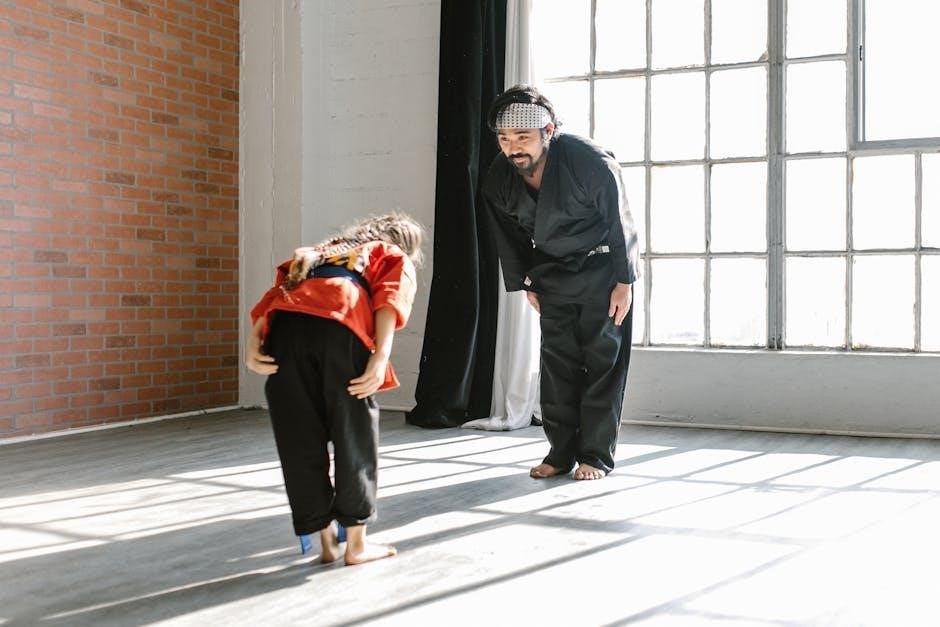
Criminal Jury Instructions
The Oklahoma Uniform Jury Instructions (OUJI) ‒ Criminal provide clear guidelines for juries in criminal cases, ensuring understanding of legal standards and the prosecution’s burden of proof.
These instructions outline the elements of crimes, defenses, and procedural requirements, helping jurors apply the law to the evidence presented in criminal trials.
3.1 Introductory Instructions
The Oklahoma Uniform Jury Instructions (OUJI) ⏤ Criminal begin with introductory instructions that outline the role and responsibilities of jurors in criminal trials.
These instructions ensure jurors understand the importance of their duty, the legal standards they must apply, and the procedural framework of the trial.
They include explanations of key concepts such as the presumption of innocence, the burden of proof, and the requirement of proof beyond a reasonable doubt.
Additionally, introductory instructions address the voir dire process, emphasizing the jurors’ oath to provide truthful answers and their commitment to fairness and impartiality.
These foundational directives are essential for preparing jurors to evaluate evidence and apply the law accurately in criminal cases, ensuring the integrity of the trial process.
3.2 Burden of Proof
The Oklahoma Uniform Jury Instructions (OUJI) ‒ Criminal explicitly outline the burden of proof, a cornerstone of criminal justice, requiring the prosecution to prove guilt beyond a reasonable doubt.
These instructions ensure jurors understand this high legal standard, emphasizing that the defendant is presumed innocent until proven guilty.
The OUJI defines “beyond a reasonable doubt” as the highest standard of proof, exceeding mere probability or suspicion.
Jurors are instructed to acquit if they harbor any reasonable doubt about the defendant’s guilt, ensuring the prosecution meets this stringent burden.
This instruction safeguards against wrongful convictions and upholds the principle that it is better for the guilty to go free than for the innocent to be wrongly punished.
By clearly defining the burden of proof, the OUJI helps jurors apply the law faithfully and impartially in criminal trials.
3.3 Specific Criminal Jury Instructions
The Oklahoma Uniform Jury Instructions (OUJI) ⏤ Criminal provides detailed guidance for jurors on specific offenses, ensuring clarity and consistency in criminal proceedings.
Instructions cover a wide range of crimes, from murder and manslaughter to robbery and burglary, outlining the essential elements that must be proven.
For example, instructions for homicide cases differentiate between degrees of murder and manslaughter, emphasizing the intent and mental state required for each charge.
The OUJI also includes procedural instructions, such as how jurors should weigh evidence and consider mitigating circumstances in sentencing phases.
Additionally, instructions address the prosecution’s burden to prove guilt beyond a reasonable doubt, reinforcing the high standard required for conviction.
These specific instructions ensure that jurors understand the legal definitions and nuances of each crime, aiding them in reaching fair and lawful verdicts.
Juvenile Jury Instructions
The Oklahoma Uniform Jury Instructions (OUJI)-Juvenile focus on legal definitions, procedural guidelines, and specific offenses relevant to juvenile proceedings, aiding jurors in understanding youth-related cases.
4.1 Introductory Instructions
The Oklahoma Uniform Jury Instructions (OUJI)-Juvenile include introductory instructions that outline the role of jurors in juvenile proceedings. These instructions ensure jurors understand their duties, the importance of impartiality, and the legal standards specific to juvenile cases. They also address procedural aspects, such as the voir dire process and the oath taken by jurors. These introductory guidelines help jurors grasp the unique nature of juvenile proceedings, which often focus on rehabilitation rather than punishment. By providing clear and concise directions, these instructions aim to facilitate a fair and informed decision-making process in juvenile court cases.
4.2 Specific Juvenile Jury Instructions
The Oklahoma Uniform Jury Instructions-Juvenile (OUJI-JUV) provide detailed directions tailored to juvenile proceedings. These instructions address unique aspects of juvenile law, such as the distinction between delinquency and criminal charges. They guide jurors on legal standards specific to minors, including burdens of proof and the consideration of rehabilitation over punishment. Instructions may cover topics like the role of parents or guardians, the purpose of juvenile court interventions, and the evaluation of evidence in cases involving minors. These specific instructions ensure jurors understand the nuances of juvenile proceedings, focusing on rehabilitation and the best interests of the child. They are essential for fair and informed decision-making in juvenile cases.

The Importance of Jury Instructions in Oklahoma Trials
Oklahoma Uniform Jury Instructions (OUJI) are vital for ensuring the integrity and fairness of trials. They provide clear, standardized guidance to jurors, helping them understand legal principles and apply the law accurately. By simplifying complex legal concepts, these instructions enable jurors to focus on the facts presented. Properly crafted instructions prevent misunderstandings and ensure that verdicts are based on the law, not personal biases. This consistency is crucial for upholding justice and maintaining public trust in the judicial system. The OUJI plays a central role in guaranteeing that trials are conducted fairly and that jurors can make informed, lawful decisions. Their importance cannot be overstated in maintaining the balance of Oklahoma’s legal framework.
Development and Updates of OUJI
The Oklahoma Uniform Jury Instructions (OUJI) are developed and updated by a dedicated committee comprising legal experts, judges, and attorneys. This committee ensures that the instructions remain current with legal precedents and statutes. Regular revisions are made to reflect changes in the law, maintaining clarity and accuracy. Updates are published on the Oklahoma Court of Criminal Appeals (OCCA) website and through legal databases like Lexis and Westlaw. Subscribers to the OCCA mailing list receive notifications of new updates. This systematic approach guarantees that jurors receive reliable and up-to-date guidance, ensuring fairness in Oklahoma’s judicial system. The continuous improvement of OUJI underscores its critical role in maintaining legal consistency and transparency.
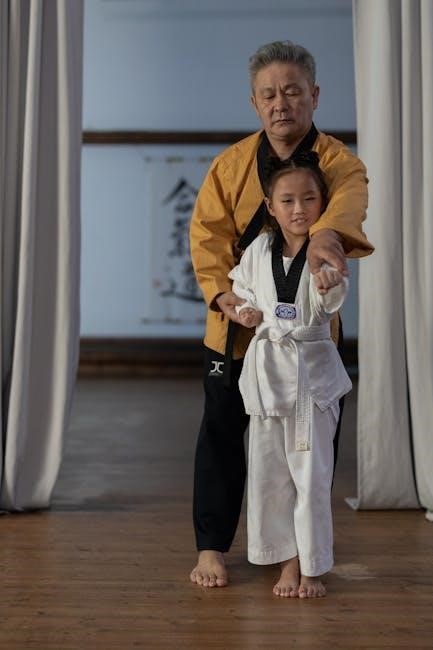
The Role of Jury Instructions in Oklahoma Criminal Law
In Oklahoma criminal law, jury instructions play a pivotal role in guiding jurors to apply the correct legal standards. These instructions ensure jurors understand the burden of proof, the definition of crimes, and the consequences of their verdicts. The Oklahoma Uniform Jury Instructions (OUJI) provide clear, standardized language to explain complex legal concepts, helping jurors reach impartial decisions. They emphasize the presumption of innocence and the prosecution’s burden to prove guilt beyond a reasonable doubt. By outlining specific laws and penalties, the instructions prevent juror confusion and ensure consistency across cases. This clarity is essential for upholding justice and safeguarding the rights of both defendants and victims, making jury instructions a cornerstone of Oklahoma’s criminal justice system.
Accessing Oklahoma Uniform Jury Instructions
Accessing the Oklahoma Uniform Jury Instructions (OUJI) is straightforward for legal professionals and researchers. The instructions are available on the Oklahoma Court of Criminal Appeals (OCCA) website under the Court Resources section. Additionally, they can be found on legal databases such as LexisNexis and Westlaw within Oklahoma-specific databases. Printed versions, including annotated editions, are published by legal publishers like Vernons Oklahoma Forms 2d. The instructions are categorized into civil, criminal, and juvenile sections, ensuring easy navigation. This accessibility ensures that attorneys, judges, and jurors can rely on standardized and updated instructions, maintaining consistency and fairness in Oklahoma’s judicial system. Regular updates are also communicated through legal mailing lists and notifications.
